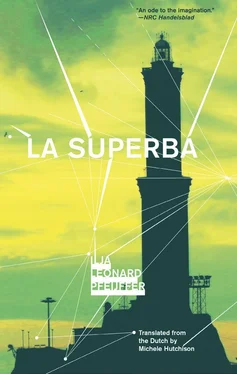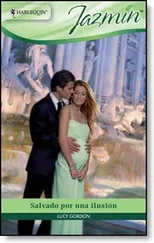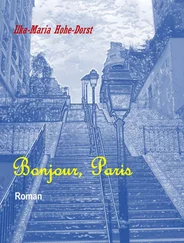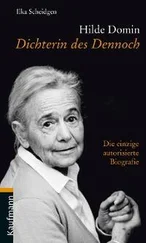“But the biggest piece of luck was that the police chief is an old friend of mine. He only showed up after a couple of days. To be honest, I think he works for a different department as a rule. I’m not sure exactly how it works. But as soon as he saw me, he was all, ‘Ciao Don. Cappuccino senza schiuma . We all live in a yellow submarine.’ He asked me what had happened. I told him that it was all a misunderstanding and that he should ring the British Consulate at once. I had already said that to the other carabinieri who had questioned me, but they had refused. He knew I still had special protection because of my work for the Service and he was happy to help me. It was all sorted out with a single phone call. I could go.
“That was an hour ago. So you’ll understand, Ilja — I could use a G&T.”
14.
A few days later I was drinking coffee and reading the papers in the little Sicilian bar on Piazza Matteotti early in the morning, when Don popped up from the wrong direction. His hotel was on the Salita Pollaiuoli but he came from the Piazza de Ferrari. It was highly irregular to come across him at such an early hour, but he’d clearly been somewhere else even earlier. He sat down next to me. His face was troubled. He ordered a coffee. That was even more irregular, if possible.
“How are you doing, Don? Where’ve you just been?”
He pointed his thumb back over his shoulder in the direction he’d just come from. “From the British Consulate.”
“Because of that little incident? When you got arrested?”
Don shook his head. “Well, indirectly. They called me two days ago to make an appointment. Which was this morning. They were very friendly. They asked about my health and in particular my financial situation. I told them the truth. I told them how difficult it is sometimes. They knew everything already and told me they might be able to help. ‘There are two gentlemen here you probably know. They’d like to have a little chat with you.’ The door opened and they came in. And indeed, I did know them well. I knew them only too well.”
He stared dejectedly into his coffee. “Maybe I need something stronger.”
“And who were they then?”
“Unfortunately I can’t tell you, Ilja.” He downed his gin and tonic in one gulp. He looked a lot better for it. And when he’d finished his second, he said, “They wanted me back. They wanted me to work for them again. For the Service. But I’m too old, Ilja. I’m too old.
“The two men were my former boss and his right hand. They’d come to Genoa especially to talk to me. Undoubtedly the Consulate had informed them about my lack of money and my recent act of desperation. We went for a coffee in the bar on the corner. I already knew what they were going to ask me, but I pretended not to. We talked about this and that and the good old times for half an hour and then the truth came out.”
“What did they want you to do?”
“They never tell you beforehand, they only explain when they’re one hundred percent sure you’re going to do the job. And just the bare minimum. You only get told the things that are absolutely essential to completing the mission. And then a lot of the time it’s probably about something other than what they’ve told you.
“But they let it drop that they were thinking of several missions. Abroad. The word Cairo was mentioned a couple of times. They told me about a good friend of mine from Cambridge. Another literary type. Turns out he’s a professor there, at the University of Cairo. They told me he was planning to organize a big international conference shortly.”
“On the metaphysical poets?”
“I didn’t know he worked for the Service, too. I should have suspected, of course. And they did offer me a generous fee. About twice as much as I used to earn from them. And they knew all too well that I’d be receptive to their offer.”
“So you agreed?”
“I can’t do it anymore. All that traveling. I’m too old for it. I’m too old, Ilja.”
15.
A week later he was dead.
It was a lovely summer’s evening. The terraces were buzzing. It was the high-pitched note of a warm day that hadn’t yet tired itself out but was satiated enough not to demand anything more of itself than this gentle and effortless slipping by in warm, slow gestures. Here and there, the metallic tinkle of a toast. Street musicians went past. They played slightly slower and their sound was slightly purer than usual. Beggars smiled. The swallows flew high above the pastel-colored palazzi. Pigeons pecked around the square without having to worry about the seagulls who’d flown far offshore over a calm sea. The fire brigade’s red helicopter flew high overhead to put out forest fires in the mountains. Tomorrow was going to be another wonderful day.
I didn’t speak to Don that evening. I sat a few tables away from him with three Italian girls. He’d been attended to at his high table by a group of boaties. Don had been at his most Donnish. I had seen him gesturing enthusiastically and heard his loud laughter. Shoulders were slapped heartily again and again. He had been able to run through a large part of his repertoire. His stories had met with warm approval. They had sung along to his songs, and he’d been generously rewarded with many brimming glasses. He had been the focal point of the evening. He had gloried.
When they left, he’d drifted off behind his sunglasses. There was a full glass of gin and tonic in front of him. He had a smile on his face.
The crowds filed past his table. “Ciao, Don.” He didn’t reply. Just smiled. “ Forza Sampdoria .” They slapped him amicably on the shoulder and carried on. “ Grande Don .”
Closing time drew near. Various waitresses had told Don in passing to finish his drink because they were about to shut. He’d listened with an affable smile.
When the bar’s shutters had been rolled down halfway, Rebecca, the owner, came out to shake him awake. His glass was just as full as before. “Don, we have to close.” His sunglasses fell from his head. And still he didn’t move. He was cold to the touch.
The ambulance arrived immediately. But there was nothing they could do. He was dead.
“How long’s he been dead?”
“It’s hard to say. But at least four hours or so. Didn’t you notice anything?”
“We thought he was happy.”
16.
The news spread through the city like wildfire. The next day, people from the suburbs were already arriving in Piazza delle Erbe to ask whether it was true. It was true. In the absence of anyone to offer their condolences to, they offered them to themselves. Rebecca had placed an improvised book of condolences on the bar in her café: an empty scrapbook with kittens on the cover, which she’d had lying about somewhere; a photo of Don, which Nello from the Internet café had printed out and framed; and Don’s last gin and tonic, which they hadn’t had the heart to empty down the sink the previous evening. The rose seller had laid a white rose next to it. Rebecca had tried to pay him for it but he’d refused. Halfway through the evening the scrapbook was already full. Nello dug up a large exercise book in the Sampdoria club colors from somewhere. That, too, was soon full. And everyone asked when the funeral would be.
That was a good question. Not least because it wasn’t exactly clear who would arrange it. Or, rather, it was all too clear. Don knew hundreds of people in this city who called themselves his friends, but he had no friends, apart from our small group of expats who had always worried about him instead of cheerfully slapping his fragile shoulders in passing, which by the way, he had always preferred to anyone worrying about him. If we didn’t organize it, no one would.
Читать дальше












